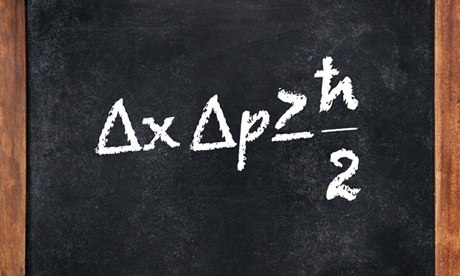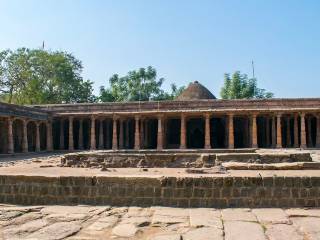Kartik Krushnapaksha Navami, Kaliyug Varsha 5116
New Delhi : In line with BJP’s consistent emphasis on projecting the country’s ancient knowledge, home minister Rajnath Singh on Saturday said that fundamentals of German physicist Werner Heisenberg’s principle of uncertainty (in quantum physics) were based on Vedas. The statement, made on Hindi Diwas, is based on assertions made in a 1975 book by Fritjof Capra. But the home ministry’s press note on the issue made the minister look rather ignorant.
The press note read that Singh said, “Famous scientist Eisenhower’s theory of uncertainty was based on Vedas.” However, a careful listening of the minister’s speech shows that he actually mentioned “Heisenberg” and not “Eisenhower”.
Singh said that Capra has mentioned that Heisenberg got the fundamentals of his principle while in a conversation over Vedas with Rabindranath Tagore. The uncertainty principle says there is a fundamental limit to what we can know about the behaviour of quantum particles and, therefore, the smallest scales of nature. Of these scales, the most we can hope for is to calculate probabilities for where things are and how they will behave.
Addressing a function here to felicitate different ministries and departments, Singh said, “Seventy-five per cent of the people in the country either speak or know Hindi. But we do not use Hindi in official work. Now such a situation has come that we have to observe ‘Hindi Divas’,” he said.
Singh said that if such a scenario continues, there would be no future for Hindi and other Indian languages. “Such a situation will be very very unfortunate,” he said.
Do Read :
Glorious Scientific History of India
The home minister said that non-Hindi speaking stalwarts of India’s freedom movement like Bal Gangadhar Tilak, Subhash Chandra Bose and C Rajagopalachari had advocated the promotion and expansion of Hindi.
Singh said that the 21st century is the century of Indian and Asian languages and all efforts must be made for their promotion. Minister of state for home Kiren Rijiju said that every ministry and department must work for the extensive use of Hindi in official work.
President Pranab Mukherjee said that India needs to bring back the days when till 12th century universities like Nalanda and Takshila were imparting education to the world.
Source : Times Of India
What is Heisenberg’s Uncertainty Principle?

The uncertainty principle is one of the most famous (and probably misunderstood) ideas in physics. It tells us that there is a fuzziness in nature, a fundamental limit to what we can know about the behaviour of quantum particles and, therefore, the smallest scales of nature. Of these scales, the most we can hope for is to calculate probabilities for where things are and how they will behave. Unlike Isaac Newton’s clockwork universe, where everything follows clear-cut laws on how to move and prediction is easy if you know the starting conditions, the uncertainty principle enshrines a level of fuzziness into quantum theory.
Werner Heisenberg’s simple idea tells us why atoms don’t implode, how the sun manages to shine and, strangely, that the vacuum of space is not actually empty.
An early incarnation of the uncertainty principle appeared in a 1927 paper by Heisenberg, a German physicist who was working at Niels Bohr’s institute in Copenhagen at the time, titled “On the Perceptual Content of Quantum Theoretical Kinematics and Mechanics”. The more familiar form of the equation came a few years later when he had further refined his thoughts in subsequent lectures and papers.
For more info, log on to The Guardian


 Madhya Pradesh: ASI survey of Bhojshala complex in Dhar to start on March 22
Madhya Pradesh: ASI survey of Bhojshala complex in Dhar to start on March 22 PM Modi to inaugurate the first traditional Hindu Mandir in Abu Dhabi
PM Modi to inaugurate the first traditional Hindu Mandir in Abu Dhabi Tirupati Devasthanams to establish platform for non-Hindus to adopt Sanatan Dharma
Tirupati Devasthanams to establish platform for non-Hindus to adopt Sanatan Dharma Baghpat court gives ownership rights of Mahabharata era Lakshagriha to Hindu side
Baghpat court gives ownership rights of Mahabharata era Lakshagriha to Hindu side Misleading claims about Brahmins removed in rationalised NCERT textbooks
Misleading claims about Brahmins removed in rationalised NCERT textbooks Big victory to Hindus as court allows puja in Vyas Ji Ka Tehkhana at Gyanvapi complex
Big victory to Hindus as court allows puja in Vyas Ji Ka Tehkhana at Gyanvapi complex